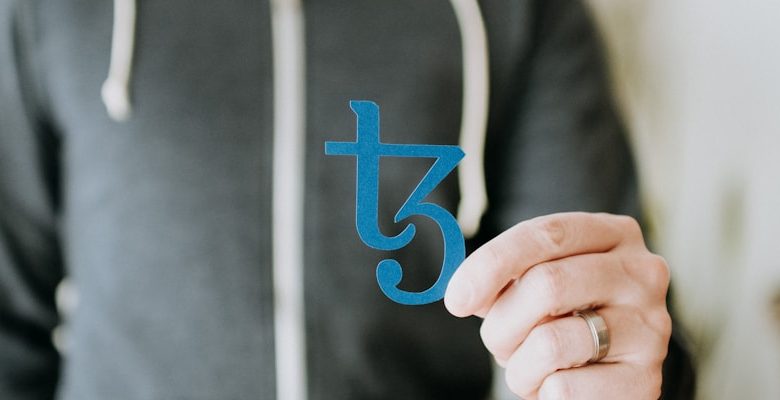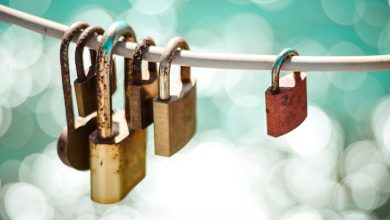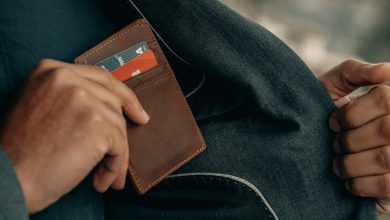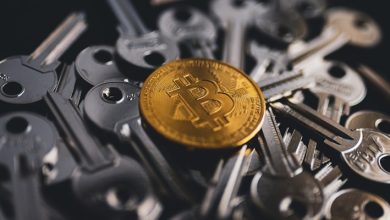How to Secure Your Crypto Wallet: Best Practices for Safety

- Understanding the importance of securing your crypto wallet
- Best practices for creating a strong password for your crypto wallet
- Two-factor authentication: A crucial security measure for your crypto wallet
- Protecting your private keys: Tips for keeping your crypto assets safe
- The significance of regularly backing up your crypto wallet
- Avoiding common pitfalls: Mistakes to watch out for when securing your crypto wallet
Understanding the importance of securing your crypto wallet
Understanding the significance of securing your cryptocurrency wallet is crucial in safeguarding your digital assets from potential threats. Your crypto wallet serves as a virtual vault where you store your valuable cryptocurrencies, making it a prime target for hackers and cybercriminals. By implementing proper security measures, you can mitigate the risk of unauthorized access and protect your funds.
One of the key reasons to secure your crypto wallet is to prevent unauthorized access and potential theft. Hackers are constantly looking for vulnerabilities in wallets to exploit and steal funds. By taking proactive steps to secure your wallet, such as enabling two-factor authentication, using strong passwords, and storing your private keys offline, you can significantly reduce the risk of unauthorized access to your funds.
Furthermore, securing your crypto wallet helps protect your investments and ensures that you have access to your funds when you need them. In the event of a security breach or hack, you could potentially lose all your cryptocurrencies, leading to financial losses. By securing your wallet with robust security measures, you can minimize the risk of such incidents and have peace of mind knowing that your funds are safe and secure.
In conclusion, securing your crypto wallet is essential for protecting your digital assets and maintaining control over your investments. By understanding the importance of security measures such as two-factor authentication, strong passwords, and offline storage of private keys, you can minimize the risk of unauthorized access and potential theft. Take the necessary steps to secure your crypto wallet today and ensure the safety of your funds in the volatile world of cryptocurrencies.
Best practices for creating a strong password for your crypto wallet
When it comes to securing your crypto wallet, creating a strong password is crucial. Here are some best practices to follow:
- Use a combination of uppercase and lowercase letters, numbers, and special characters in your password to make it more complex and difficult to crack.
- Avoid using easily guessable information such as your name, birthdate, or common words as part of your password.
- Make sure your password is at least 12 characters long to provide an extra layer of security.
- Consider using a password manager to generate and store unique, strong passwords for each of your accounts, including your crypto wallet.
- Regularly update your password and avoid using the same password for an extended period of time.
By following these best practices, you can help protect your crypto wallet from unauthorized access and potential security breaches.
Two-factor authentication: A crucial security measure for your crypto wallet
Implementing two-factor authentication (2FA) is a crucial security measure to enhance the safety of your crypto wallet. 2FA adds an extra layer of protection by requiring users to provide two different authentication factors before accessing their accounts. This significantly reduces the risk of unauthorized access and helps prevent potential security breaches.
Protecting your private keys: Tips for keeping your crypto assets safe
When it comes to securing your cryptocurrency wallet, protecting your private keys is paramount. Private keys are essentially the passwords that grant you access to your crypto assets, so keeping them safe is crucial to keeping your funds secure. Here are some tips on how to keep your private keys safe:
- Never share your private keys with anyone, no matter how trustworthy they may seem. Your private keys should be kept confidential at all times.
- Consider storing your private keys offline, such as on a hardware wallet or a piece of paper kept in a secure location. This can help protect your keys from being hacked online.
- Regularly back up your private keys in multiple secure locations to prevent loss in case of theft or damage.
- Avoid storing your private keys on devices that are connected to the internet, as this can make them more vulnerable to hacking.
- Use strong passwords to protect your private keys, and consider using a password manager to help you keep track of them securely.
By following these tips and taking proactive measures to protect your private keys, you can help ensure the safety and security of your crypto assets.
The significance of regularly backing up your crypto wallet
Regularly backing up your crypto wallet is of utmost importance in ensuring the safety and security of your assets. By creating backups, you can protect against the risk of losing access to your funds in case of theft, hardware failure, or other unforeseen circumstances.
When you back up your wallet, you are essentially creating a copy of the private keys that grant you access to your cryptocurrency. This means that even if your original wallet is lost or compromised, you can still restore your funds using the backup.
It is recommended to back up your wallet on a regular basis, ideally after every transaction or significant change to your holdings. This way, you can ensure that your backups are up to date and reflect the most recent state of your wallet.
Additionally, storing your backups in multiple secure locations can provide an extra layer of protection. Consider keeping a copy of your backup on an external hard drive, USB drive, or even a paper wallet stored in a safe deposit box.
Overall, regularly backing up your crypto wallet is a simple yet effective way to safeguard your assets and give yourself peace of mind knowing that your funds are secure and accessible in any situation.
Avoiding common pitfalls: Mistakes to watch out for when securing your crypto wallet
When securing your crypto wallet, there are several common pitfalls that you should be aware of in order to protect your assets. One mistake to watch out for is using a weak password. A strong password is essential to prevent unauthorized access to your wallet. Additionally, avoid storing your password or private keys in easily accessible locations, such as on your computer or in the cloud.
Another common mistake is failing to enable two-factor authentication (2FA). 2FA adds an extra layer of security by requiring a second form of verification in addition to your password. By enabling 2FA, you can significantly reduce the risk of unauthorized access to your wallet.
It is also important to be cautious of phishing scams. Phishing scams involve fraudulent attempts to obtain sensitive information, such as your password or private keys, by posing as a trustworthy entity. Be wary of any unsolicited emails or messages asking for your personal information, and always verify the authenticity of the sender before providing any sensitive information.
Lastly, be mindful of the security of the devices you use to access your wallet. Ensure that your computer and mobile devices have up-to-date antivirus software and security patches to protect against malware and other threats. By taking these precautions and avoiding common pitfalls, you can help safeguard your crypto assets and enjoy greater peace of mind.



